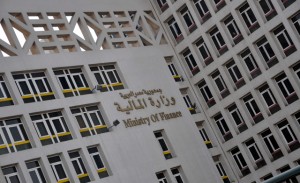
(DNE File Photo)
The government borrowed more in July than it had previously in the last three years, according to new statistics released from the Ministry of Finance.
The financial monthly bulletin issued by the Ministry of Finance showed the total issuance of bonds for May and June registered EGP 54.5m and 47.5m, respectively.
The time frame for the releasing of treasury bonds, a form of government debt with less than one year maturity, showed that July witnessed the highest rate of government borrowing in three years, after the government released EGP 81.5bn.
An official at the ministry of finance, who requested to remain anonymous, said the issuance of these treasury bills “has no relation with the reshuffling that has been going on in the ministry.” He added that the surge in T-bills released was to cover “the costs of debt” taken over the past year.
Alaa Mostafa, economic expert and CFO at Elsewedy Cables Corporation, said treasury bonds are considered safe investments to banks because they are guaranteed by the government.
“Governments rely on foreign debt or on the domestic debt in the form of treasury bonds to pay off the budget deficit,” he said.
Mostafa said the success of this initiative would depend on the national income and the cash inflow the country will achieve.
“With an improved national income and alleviated levels of foreign reserves, the treasury bonds will succeed,” Mostafa said.
He also stressed that political stability is the foundation of any economic achievement.
The government had previously announced its intent to release treasury bonds over the current fiscal year worth upwards of EGP 200bn in order to close the country’s budget gap, which is expected to reach up to EGP 197.5bn.
Average rates for treasury bonds released per month by the Ministry of Finance had until recently stabilised at nearly EGP 70bn.
In July 2012 the government borrowed upwards of EGP 71bn, while net domestic borrowing in July 2011 totalled EGP 35bn. In July 2010, these numbers totalled EGP 45bn.


